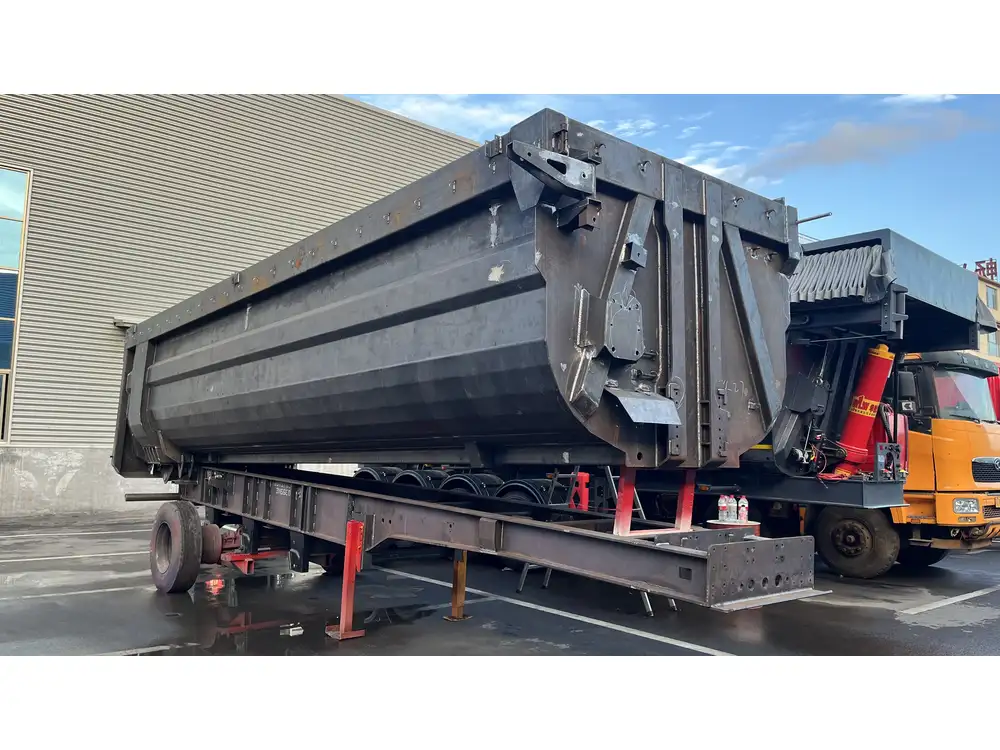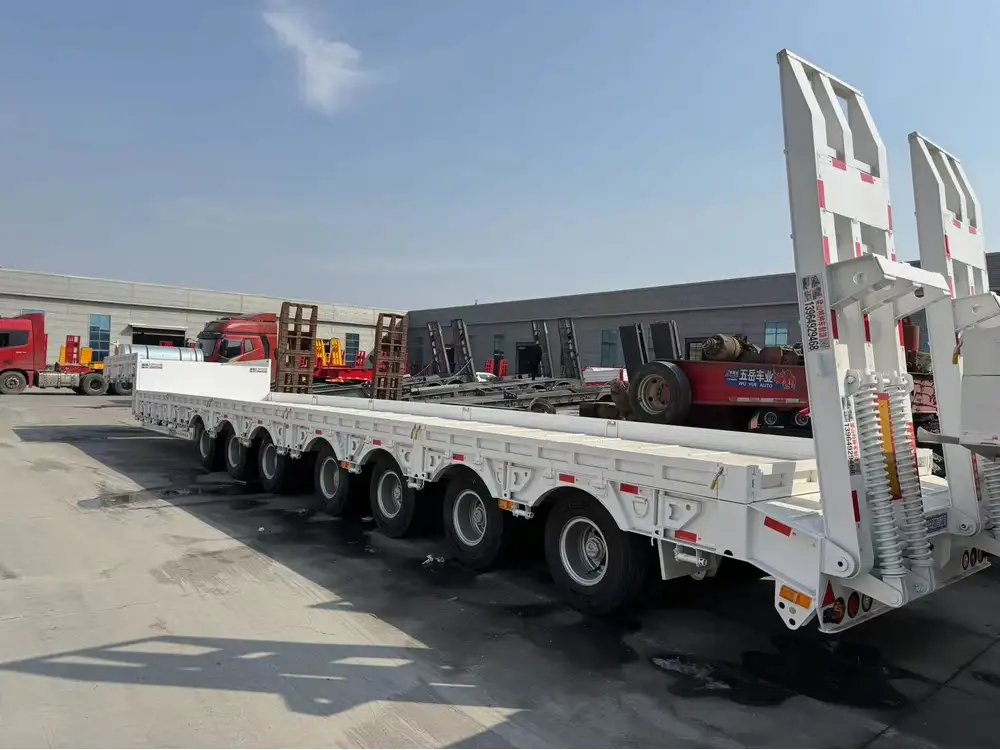When operating a dump trailer, understanding the specific fluids required to ensure optimal functionality and longevity becomes paramount. This guide serves as an extensive resource tailored for both new and seasoned operators looking to maintain efficiency and efficiency in their hauling operations. Here, we will dissect the essential types of fluids, their roles, recommended specifications, and troubleshooting pointers to navigate potential issues.
The Essential Fluids for Dump Trailers
Dump trailers are designed with hydraulic systems that facilitate the lifting and tilting necessary for unloading cargo. Thus, fluids play a crucial role in these operations. Here’s a summarized table outlining the primary fluids involved in dump trailer functionality:
| Fluid Type | Purpose | Recommendations |
|---|---|---|
| Hydraulic Oil | Powers lifting mechanism | ISO 32 or 46 hydraulic fluid |
| Gear Oil | Lubricates gears in the braking system | EP (Extreme Pressure) gear oil |
| Brake Fluid | Ensures proper braking mechanism | DOT 3 or DOT 4 brake fluid |
| Water (if applicable) | Prevents corrosion in water tanks | N/A |
1. Hydraulic Oil: The Lifeblood of Dump Trailers
Hydraulic oil acts as the foremost fluid in a dump trailer. It’s critical for enabling the hydraulic ram to operate effectively. Here’s an in-depth look at hydraulic oil:
Viscosity Ratings: Typically, we recommend ISO 32 or ISO 46 for varying temperatures. While ISO 32 is suitable for cooler environments, ISO 46 better serves those operating in warmer conditions.
Additives: Choose hydraulic fluids containing anti-wear and anti-foam additives to protect your equipment from wear and tear, ensuring long-term serviceability.
Maintenance: Regular checks and timely replacement of hydraulic oil are essential to prevent breakdowns. It’s advisable to change the oil annually or after every 200 operating hours, depending on usage.

2. Gear Oil: Ensuring Smooth Operations
The gearbox in a dump trailer is fundamental for ensuring efficient and smooth operations, particularly during the dumping process. The selection of appropriate gear oil cannot be overstated:
Type: Opt for EP (Extreme Pressure) gear oil, typically rated on the SAE scale (10W, 30W) based on your trailer’s operating conditions. For most dump trailers, 80W-90 is a prevalent choice, striking the right balance between protection and performance.
Usage: Gear oil should be inspected regularly for contamination or degradation, which can lead to mechanical failures.
3. Brake Fluid: Safety First
Safety during operation is paramount, therefore, utilizing the right brake fluid becomes crucial:
Specifications: Use only DOT 3 or DOT 4 brake fluids as their boiling points provide the necessary safety margins for even the most rigorous hauling conditions.
Replacement: Be vigilant regarding the brake fluid’s quality. Brake fluid can absorb moisture over time, leading to brake failure. Check and replace it every 1-2 years to maintain peak performance.
4. Water: A Secondary Option
In specific dump trailer designs, particularly those used for transporting loose materials like dirt or sand, a water tank may be incorporated to manage dust and maintain load integrity.
- Corrosion Protection: When utilizing water, it is essential to add anti-corrosive agents to prevent rust from developing in the tank and plumbing system.

5. Fluid Compatibility: Key Considerations
Mixing Fluids: A major pitfall for trailer operators lies in the incorrect mixing of fluids. For instance, hydraulic oil should never be mixed with brake fluid or gear oil. Doing so can lead to chemical reactions that may cause system failures.
Refer to Manufacturer Guidelines: Always consult the trailer manufacturer’s recommendations for specific fluid types and avoid generic or inferior alternatives. This guidance is often available in user manuals or through customer service.
Troubleshooting Common Fluid-Related Issues
Fluid-related issues can manifest in various forms, significantly impacting trailer performance. Below is a structured approach to identify and remedy these challenges.
1. Hydraulic Problems
Symptoms: Slow or ineffective lifting of the dump bed.
Causes:
- Low hydraulic fluid levels
- Contaminated hydraulic fluid
Solutions:
- Check and top-off fluid levels.
- If contamination is suspected, perform a fluid change.

2. Gearbox Malfunction
Symptoms: Unusual noises or grinding during operation.
Causes:
- Insufficient or degraded gear oil
Solutions:
- Inspect and refill with appropriate gear oil if low. If the grinding persists, a detailed examination of the gearbox may be required.
3. Brake Issues
Symptoms: Spongy or unresponsive brakes.
Causes:
- Old or contaminated brake fluid
Solutions:
- Check fluid levels and quality. Replace the fluid if it appears cloudy or has absorbed moisture.
4. Water Tank Challenges
Symptoms: Ineffective dust suppression.
Causes:
- Clogged lines or corrosion in the tank
Solutions:
- Regularly inspect the water system for blockages and implement cleaning procedures as needed.

Regular Maintenance Schedule: The Key to Longevity
Establishing a regular maintenance schedule can significantly improve the lifespan and efficiency of your dump trailer. Here’s a detailed maintenance checklist:
| Frequency | Task | Notes |
|---|---|---|
| Monthly | Check hydraulic fluid levels | Top off as necessary and inspect for leaks |
| Quarterly | Inspect gear oil and brake fluid | Replace if contaminated or degraded |
| Annually | Perform comprehensive checks on all fluid systems | Includes hydraulic, gear, and brake fluids |
| Biannually | Inspect and clean water tanks (if applicable) | Ensure all connectors are leak-free |
| As Needed | Replace any fluids or mechanical parts | Based on usage and performance evaluations |
Conclusion: Ensuring Optimal Performance for Your Dump Trailer
In conclusion, being diligent about the types and conditions of fluids utilized in your dump trailer is pivotal for both safety and functionality. By understanding the crucial roles each fluid plays, carefully selecting the appropriate types, and adhering to a maintenance schedule, operators can prevent many common issues, ensuring that their dump trailers perform at peak efficiency.
For users investigating their options in trailer management, embracing this guide will not only enhance understanding but empower them to make educated decisions surrounding the care of their dump trailers. Remember, prioritizing appropriate fluid selection and maintenance can substantially impact the operational lifespan and reliability of your equipment, leading to safer and more efficient workdays.



